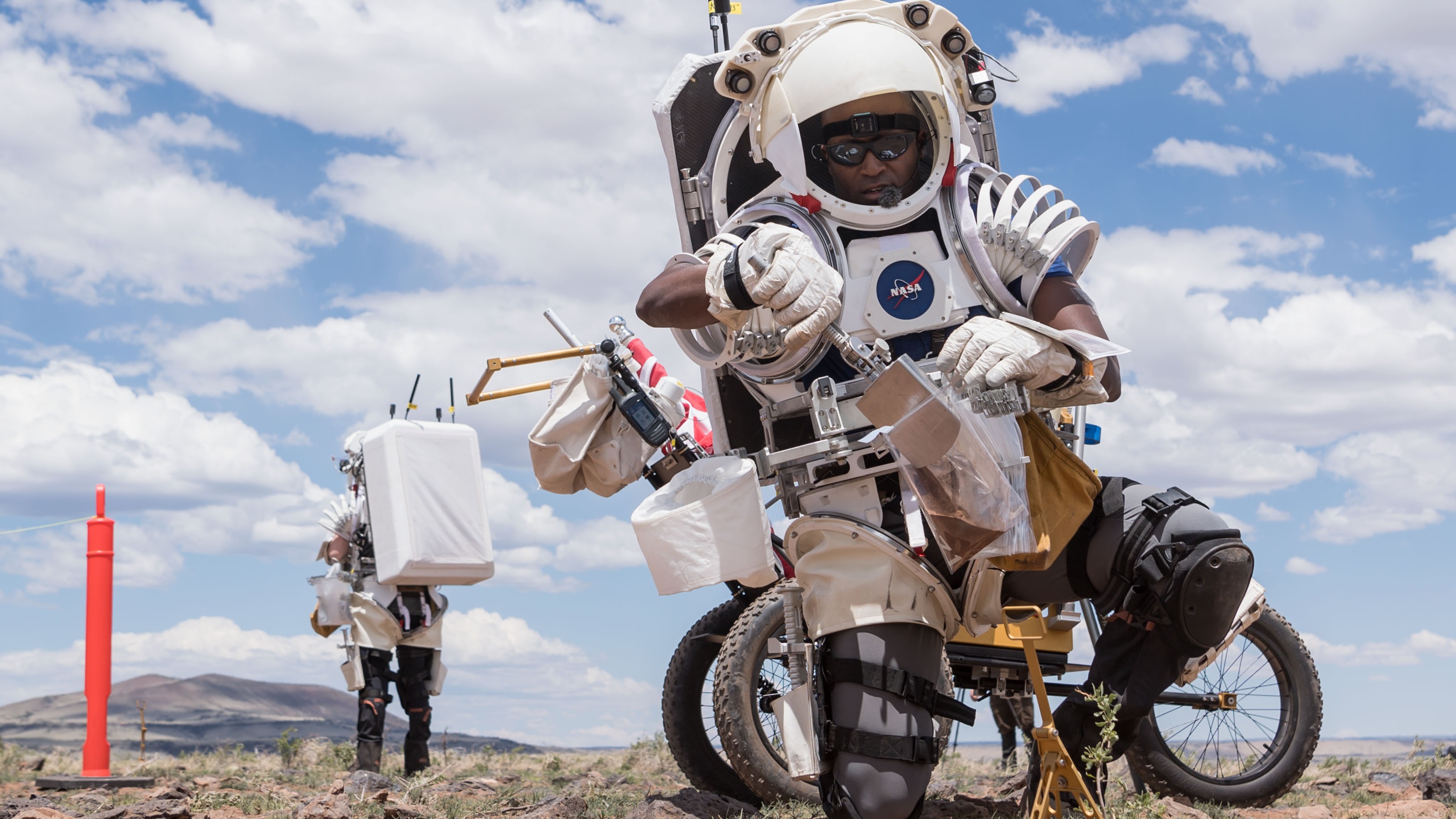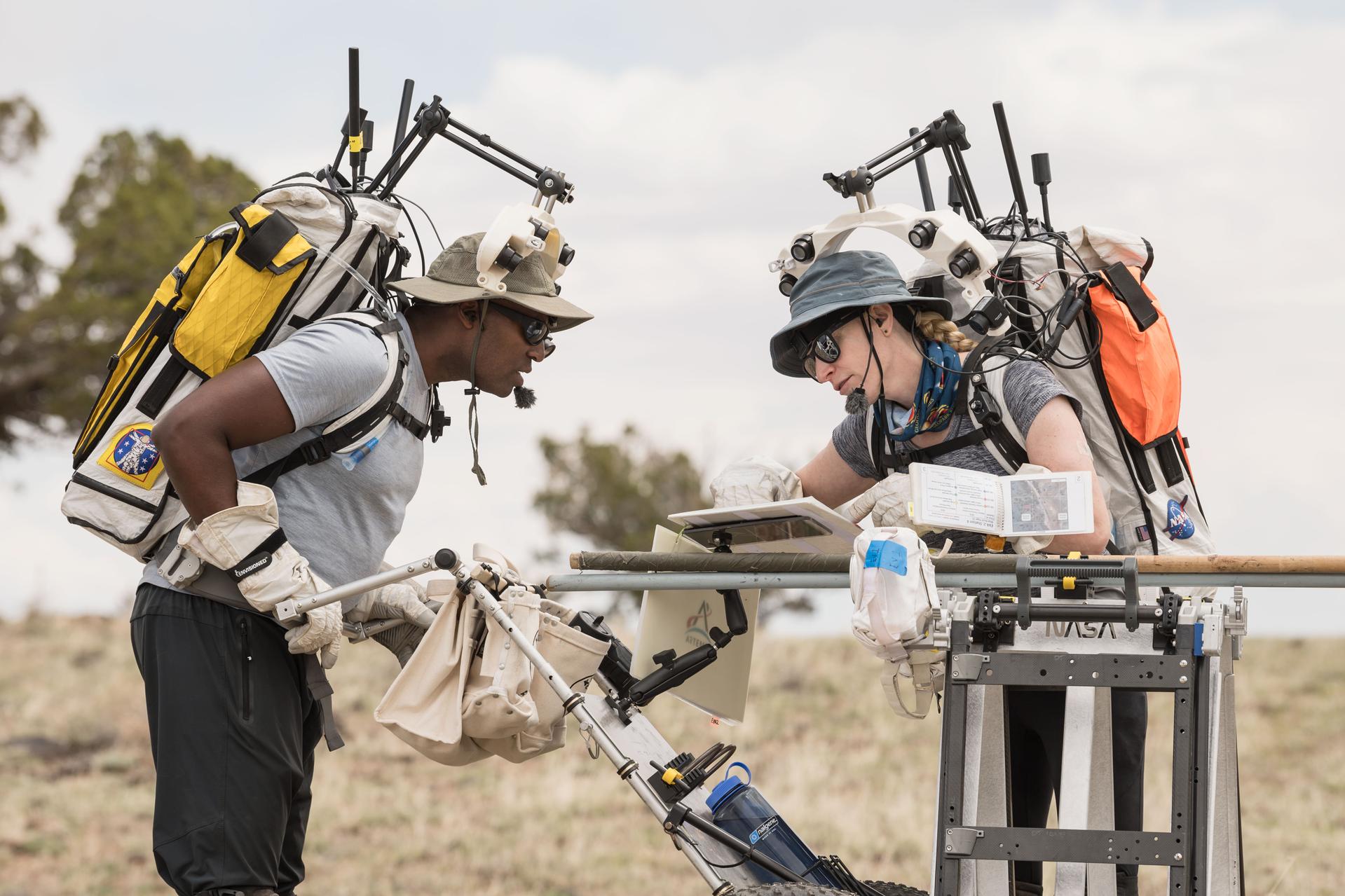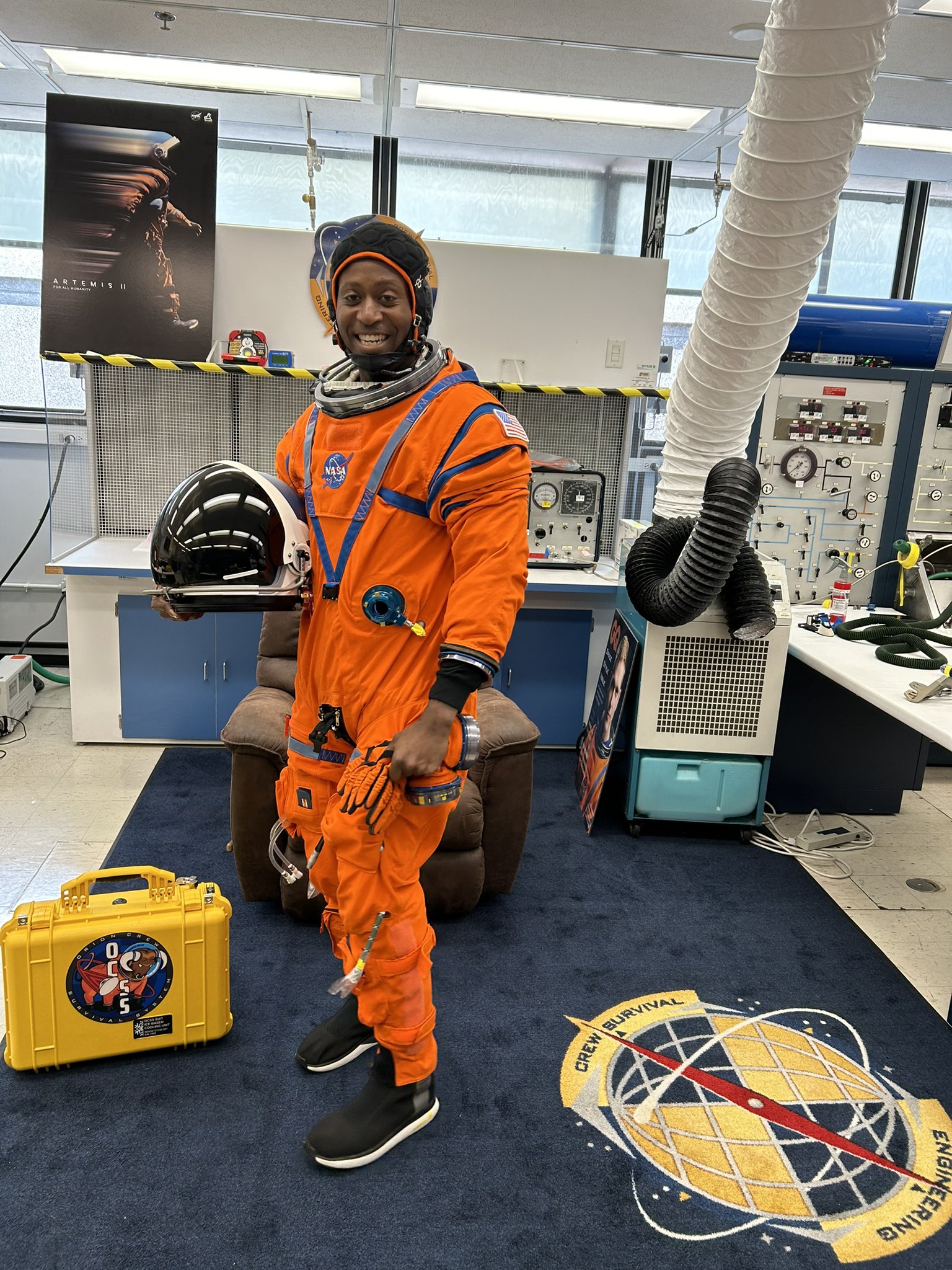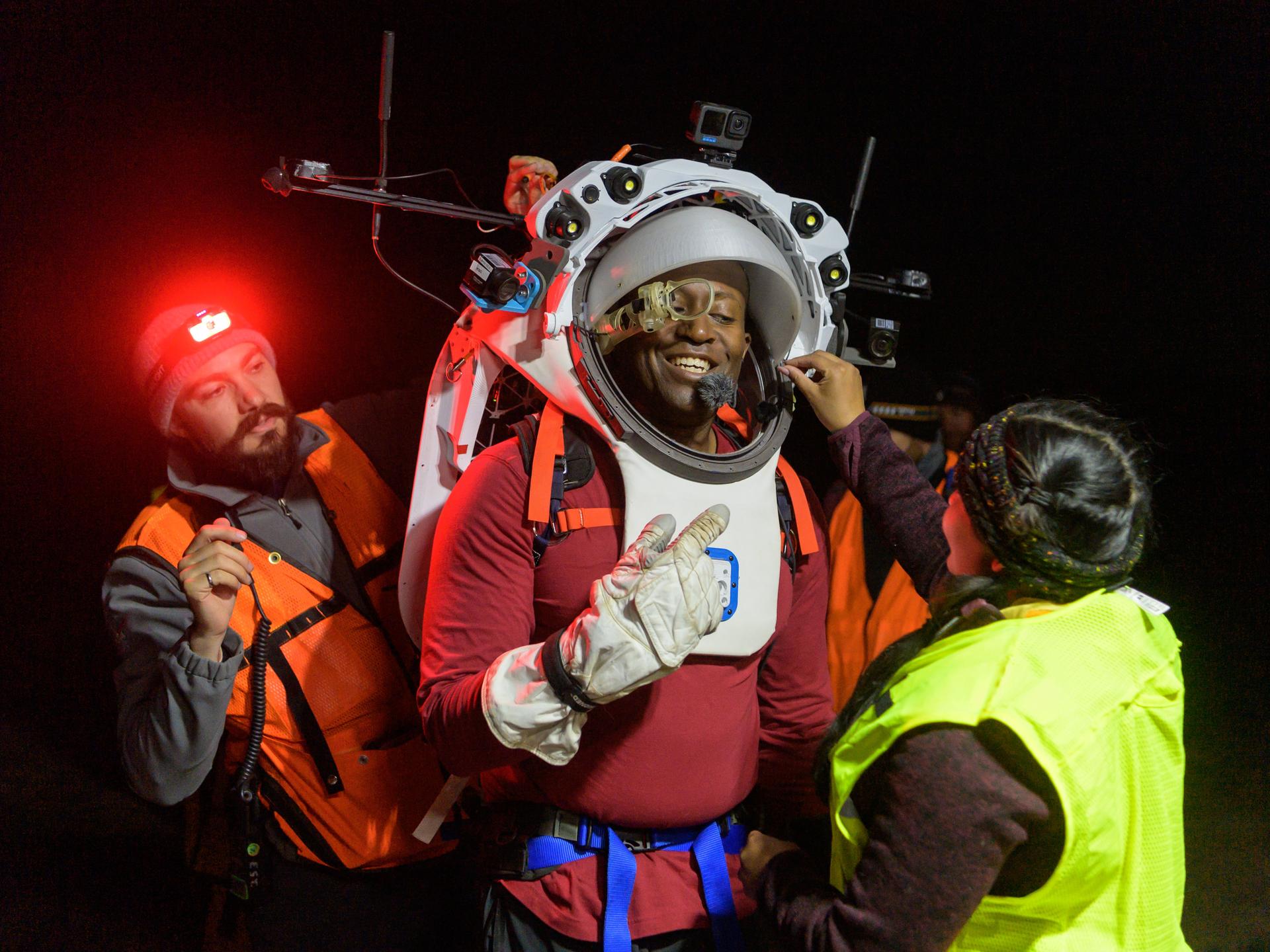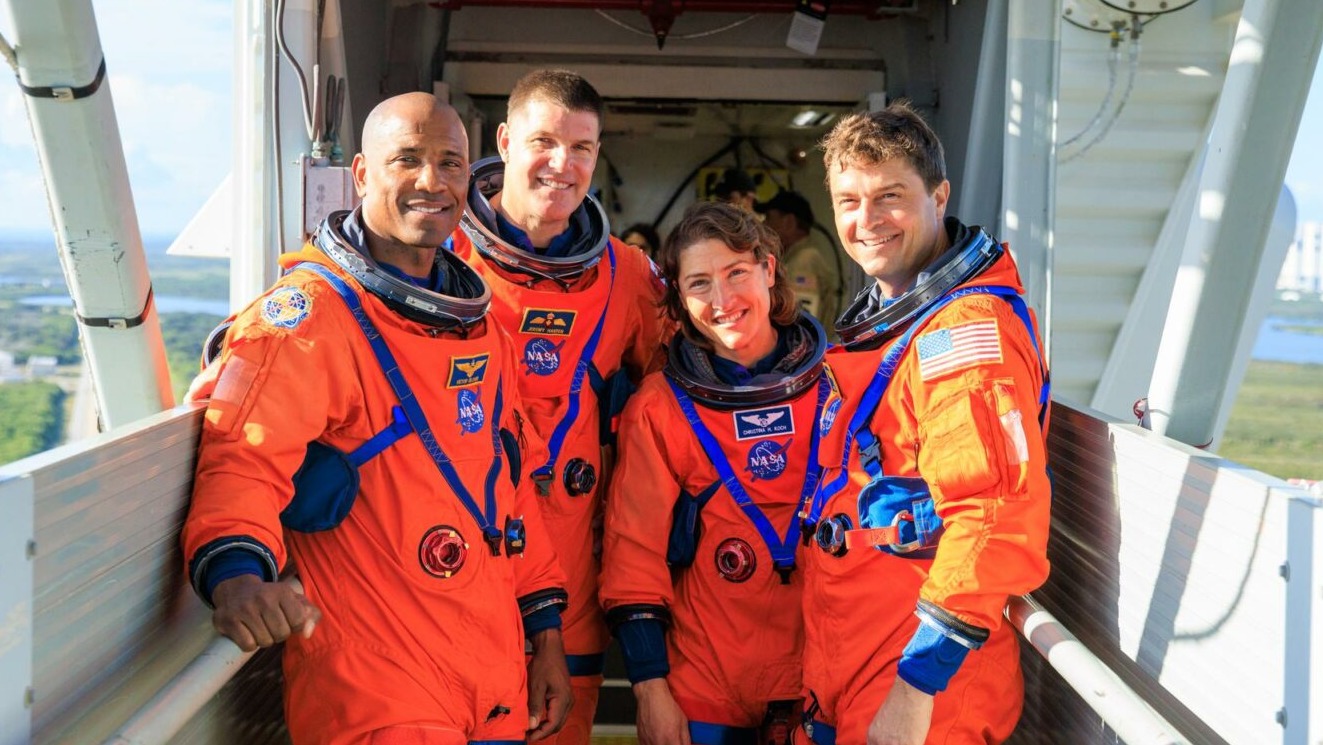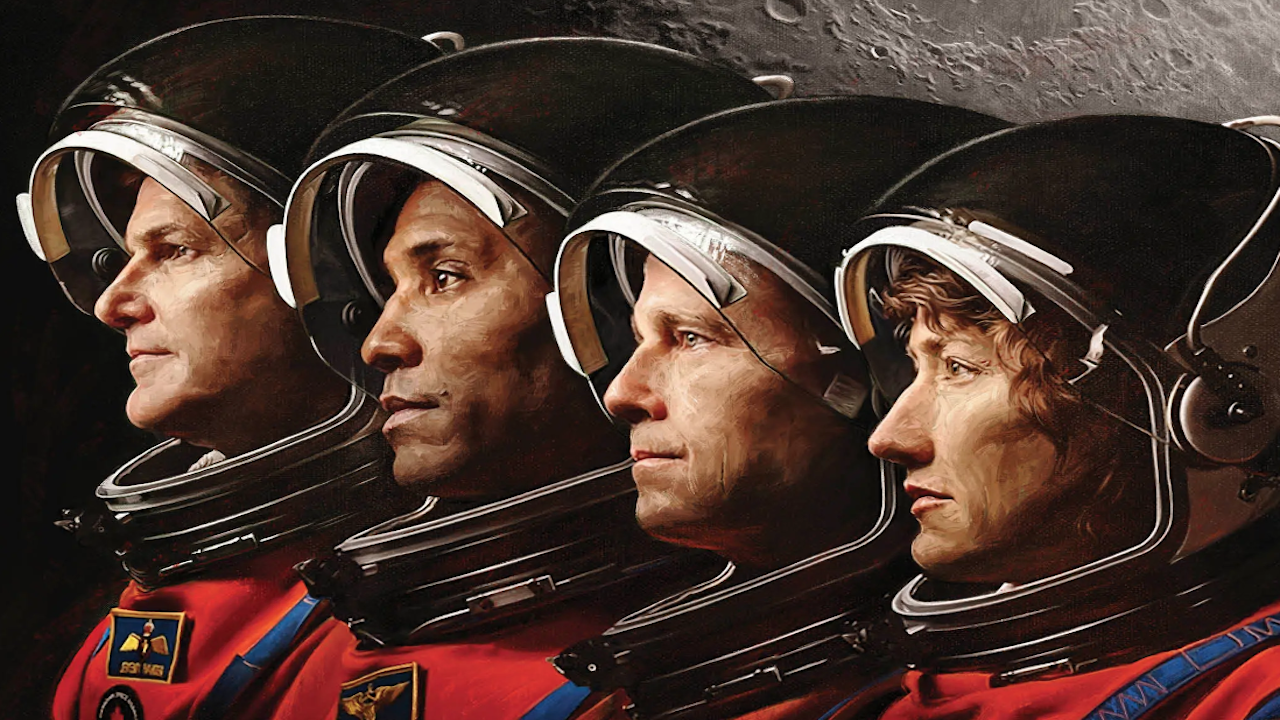'That was a really wild experience': How brand-new NASA astronaut Andre Douglas joined Artemis 2 moon mission (exclusive)
The backup astronaut joined the crew weeks after being certified for spaceflight assignments.
Andre Douglas' first three months as a NASA astronaut have taken him from training in Arizona to readying for a moon mission.
Douglas, who became eligible for NASA spaceflight assignments in March, was named a backup for the highly anticipated Artemis 2 mission just weeks after he passed two years of basic astronaut training. His experience with early developmental programs in space was likely a factor, especially his time building spacecraft missions for the Johns Hopkins University Applied Physics Lab (APL).
Artemis 2 aims to send four astronauts around the moon no earlier than September 2025, in the first crewed moon mission since Apollo 17 in 1972. Douglas spoke with Space.com in an exclusive interview about what the crew is working on and what's coming next in their training.
Space.com: The last time we spoke was during the day when everybody was graduating from your astronaut class in March. What training activities have you been working on since then?
NASA astronaut Andre Douglas: Graduation was in March, big day. But even a few months before then I started doing my ground jobs. The first of them was the pressurized rover. That's this collaboration between us and the Japanese Aerospace Exploration Agency. With my background in APL, doing vehicle design and test, that was very applicable. The rover is not pressurized. Basically, it's like a dune buggy and what they used on Apollo.
Then I'm helping out with the spacesuits, where I did that test out in Arizona. That was CONOPS — the concept of operations for doing all the geology, and how many EVAs [extravehicular activities] we were going to do. It wasn't specifically to test the suits, but it was really good at thinking about all the different tasks that we'll have to do when we do geology. And I could feed that back with [NASA astronaut] Kayla Barron. She works primarily with the suit development, and she needed some support.
Breaking space news, the latest updates on rocket launches, skywatching events and more!
Then the other job was working on lunar Gateway. Gateway is the new space station around the moon. That's slated for Artemis 4. We're trying to figure out all the things that are leading up to it, and then trying to use our current ISS experience to understand what we might need in lunar orbit.
At the same time, I was also working on my capsule communicator certification, so capcom. I just got my capcom certification last week. And while I was still doing that, we do all of the ready crew tasks. When you're not assigned, you're in the ready crew branch. That's mission support: I was doing NBL [Neutral Buoyancy Laboratory, a giant pool where spacewalks are practiced] runs, flying jets, doing my Russian language, all the same things we did in the basic astronaut training. You just maintain your proficiency and your currency.
I now do Artemis 2 backup crew training on top of all of those things. So I am pleasantly busy. I just want to make sure I balance everything with having fun at home, with the wife and two kids.
Related: Astronauts won't walk on the moon until 2026 after NASA delays next 2 Artemis missions
Space.com: We're glad to hear, as it's important to make sure your family is prioritized, too. Regarding Artemis 2: Can you talk to me about how you found out?
Douglas: That was a really wild experience. I remember getting a heads up: "Andre, we need you to come to the office." I'm thinking to myself, "I don't really have anything that I've done wrong." I was thinking to myself, "Oh, this could only be exciting news or something out of left field. This is probably related to an assignment."
So I was walking into the office. It was like, May 10. I was thinking, "Man, this is close to my birthday. What a birthday present this could be. It's probably going to be either the International Space Station [ISS], either a Dragon or the Soyuz."
I get in there, and I'm talking to [deputy chief of the astronaut office] Shannon Walker and [chief astronaut] Joe Acaba. They're like, "This is an assignment. You're smart enough to figure that out. But we wanted to let you know, you are assigned as the Artemis 2 backup."
As soon as they said, "Art—" I went, "Whoa, did not expect that." That was a pleasant surprise. To my experience and just the feel of the office, it wasn't necessarily a prime objective to get a rookie on an Artemis flight anytime soon. So I had expected that everybody who just graduated would go to the ISS first, kind of get acclimated to space, and then go to Artemis as we're figuring things out. I thought this was a very unique situation where they have somebody who's just out of the program and jumping right into Artemis, and it's exciting. So I feel very honored to be a part of it.
As I'm going through the job, now I understand [why I was selected]. It's more than just flying. There's a lot of development. With my background, with the degrees and with the experience that APL [gave me] with being an operator, and the Coast Guard, all of that comes into play. And it's a really nice sweet spot for me to be able to contribute right out the gate.
Space.com: Can you explain what backup duties mean, besides stepping in and helping the prime crew if someone can't fly?
Douglas: Primarily you're doing [training] that the prime crew is doing. But most importantly, I've learned that I'm going to help do a lot of the closeout activities during the launch. So we become something called the ASP: the astronaut support person. We're really hanging out with the families, making sure that everybody has what they need. We're going to the launch pad. We're going to help them [the astronauts] get strapped in during the last closeout procedures, close the hatch. And if there's any sort of contingency, if we have to abort off the pad, we'll be right there, get them down off the launch pad, down the zip line [and] into the emergency egress equipment. Then get out of Dodge, basically.
In the next few days, we're going to leave and go to Iceland, where we're doing geology training. The geology training is the [two] backups and the [four] prime crew working as one crew of six. So we get to learn each other, which is important in case one of us [backups] has to step in. And then the other piece of that is we're trying to make sure we refine the syllabus for the geology training for Artemis 3 and beyond.
Related: Moon scientists hail Artemis opportunities while still learning from Apollo
Space.com: How do you think that your experience is helping to complement everybody else, backups and prime?
Douglas: I think the first thing off the bat is, having a very strong or heavy developmental engineering experience at APL is going to be very important for trailblazing the Orion capsule and the rest of the program. Everybody in this crew is trying to figure out the decision points, milestones, key things that we need to focus on and balance risk. I think [it helps] having a lot of experience in the undersea community and the space exploration community and trying to figure out [not only] how to meet schedules, but how to get the most out of the mission. It helps shorten the learning curve, to be able to understand what's going on in these meetings, where you really understand all the acronyms.
Being from the Coast Guard was very valuable: doing a lot of drills as a damage control assistant where we're responsible for our own ship or out at sea. Nobody's going to come save you when you're halfway across the Atlantic. You're responsible for the firefighting of the ship, the stability of the ship. And then you're really good at engineering and understanding the plan and the configuration. You do a lot of drills. You're getting into that mindset of checking your systems and understanding what are the next steps, understanding emergency procedures
I think that operational-slash-developmental combination will help complement Reid Wiseman and Victor Glover; as they are pilots and test engineers, I can back them up there. Jeremy Hansen has got a lot of experience in flying in the jet. Christina Koch is another APL [veteran], so understands requirements and procedures. I think I'm a unique complement to all of them in various different ways. It should be a lot of fun.
Related: See Artemis 2 astronauts explore moon-like crater in Canada (photos)
Space.com: Aside from Iceland, what other activities is Artemis 2 doing for training?
Douglas: The next thing in August is all the support for closeout crew. That's the backup crew. The prime crew is going to do something, likely next spring, where they practice [again] launch pad operations. This time [the Canadian Space Agency's] Jenni Gibbons and I, the backup crew, are going to focus on what we can do for the closeout. Recovery operations — I think [that will be] next year, if I would get involved in that. Then, it just goes down to a lot of the Artemis-specific sims, the human-in-the loop testing. Getting the vehicle ready for flight is the biggest hurdle.
It's also a lot of outreach, because we're trying to make sure we communicate our message. We're trying to get out to the communities. When I first got assigned, that was one of the things they said that was unique about this specific assignment: There will likely be a lot more PR [public relations] than usual. Usually, we try to focus on spaceflight, but [in Artemis] it's maybe 10% to 20% more [PR than for ISS missions]. I have some stuff lining up on my schedule as we speak. Like next week I'll go reach out to some of the vendors that helped with Artemis 1, and speak with them and thank them for all the hard work that went into it.
Space.com: Anything else you want to include?
Douglas: It's exciting, because I wanted to do this since I was a kid — since I was seven. To see where we are now is kind of amazing. I never would have thought that I'm looking at a new space station around the moon, and building a deep space transportation system, and trying to go beyond. It's pretty daunting. It's going to take some time.
But at the end of the day, like everybody in NASA and its contractors, we're all moving forward as best as we can. And we want to make sure that everybody gets to where they need to go safely. Whether that takes more time, whether that takes more grit, more detail — that's what we're pushing for.
This interview has been edited and condensed.

Elizabeth Howell (she/her), Ph.D., was a staff writer in the spaceflight channel between 2022 and 2024 specializing in Canadian space news. She was contributing writer for Space.com for 10 years from 2012 to 2024. Elizabeth's reporting includes multiple exclusives with the White House, leading world coverage about a lost-and-found space tomato on the International Space Station, witnessing five human spaceflight launches on two continents, flying parabolic, working inside a spacesuit, and participating in a simulated Mars mission. Her latest book, "Why Am I Taller?" (ECW Press, 2022) is co-written with astronaut Dave Williams.
